I recently had the pleasure of speaking with filmmaker Georgie Cowan-Turner, whose latest short film “My Morning Routine” is a brilliant yet disturbing social commentary on a harsh reality faced by women both online and offline. It highlights the pressure to fit the patriarchal idea of perfect beauty standards/ideals and to hide every ‘imperfect’ blemish. In this interview, Cowan-Turner takes me through her filmmaking journey, her creative process, and more.
Note: this interview has been edited for clarity.
Vidal Dcosta for The Movie Buff: What influenced you to become a filmmaker?
I think I have always been interested in documenting the world around me and perhaps finding drama in ordinary moments that most films overlook. I watched a lot of films when I was younger; and, now I look back on it, most of the games I played involved me somehow or other acting out a scene from something as if I had a camera set-up to film it.
At school, studying film wasn’t really an option; I only started to see it as a career when I was studying at University College London and ended up referencing more films in my English literature essays than books. There is certainly a space in the film industry for films that approach life in different ways and that can also have mass appeal; this is something I aspire to and hope I can achieve in my career!
What were the hurdles you faced initially as a filmmaker or while scripting/filming your debut?
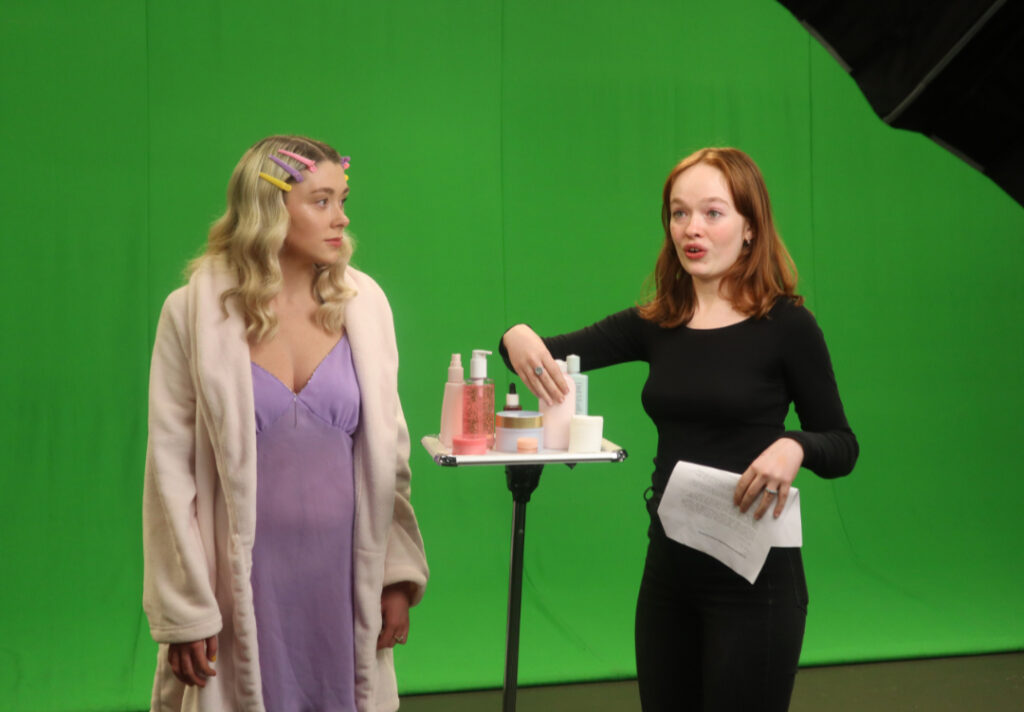
The main hurdle initially was thinking that there were too many barriers to even making a film. For young people, most have grown up being told working in the Arts leads to pennilessness and instability. Combine this with the amount of debt we have all incurred by the time we leave university, and I must admit, initially, I was worried about whether choosing to direct films would be a reckless decision. I suppose my breakthrough came when I ended up working a full-time job at Keats House Museum after graduating.
The number of times people had warned that I would never get a job which had any relevance to my English degree—and there I was using it every single day. I was essentially working in someone else’s dream job; it made me recognise that I needed to just go for it with film and ignore the negativity. I combined my job with work as a Supporting Artist on a few Netflix films and shows, and although it was exhausting, it enabled me to understand the roles on set and the hours I would need to put in if I wanted to work in the industry. Deciding to study an MA in film at Queens Belfast for me this was a great decision—I really needed to boost my confidence in my skills and develop my style.
I wrote my first screenplays and made my debut (“My Morning Routine”) there. It was a great chance to experiment and work creatively with people and I had never really had the opportunity to do this before. Within a few months of studying there I had been shortlisted for a TV pilot competition run by Global Action Plan and Richard Curtis—which proved to me how much I had gained in confidence, even to be entering a competition in the first place.
Are there any filmmakers or artistes in particular whom you look up to or are inspired by?
Wes Anderson is a definite inspiration—I love the intricacy of his films and the dead-pan humour. A few years ago, I was introduced to Věra Chytilová and her film “Sedmikrásky” (“Daisies”). It is such a bold and humorous portrayal of the issues faced by women at the time and I would love to say I share her satirical approach. I have always been really interested in intricate television dramas whether it be “Mad Men,” “The Americans” or perhaps something more recent like “Babylon Berlin” and “The Queen’s Gambit.”
I gained a lot of experience in historical research in my job at Keats House; [it seems I]always end up gravitating towards the more ‘mundane’ stories or popular culture issues from the past perhaps because you always find women’s stories there. It would be great to make a series with the production value of “Mad Men” that focused on these stories
I thought you did a great job dissecting disturbing societal expectations in “My Morning Routine” on women to look flawless. Were you ever subjected to such unrealistic expectations in real life? If so, did any of these personal experiences make their way into the script of “My Morning Routine?”
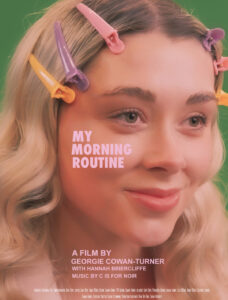
Oh absolutely. I think most women have been and continue to be and that’s what I wanted the film to reflect on. I knew I needed this film to be recognisable to women across the world, not as a criticism of makeup. I love to wear makeup but on my own terms.
The issue most women face is the prescriptiveness of makeup advertising. As soon as we are told ‘we must curl our eyelashes’ or this product will ‘give us perfect skin’ we are hit with the enticement of perfection and the insult that we are not satisfactory as we are. When you think of how young we are when we begin to be targeted by this—whether it be on TV or now on social media—it really is shocking that this is how the world believes we should sell products to women.
What some people do not realise is you can be strong and confident in yourself; but when you are constantly bombarded by jingles that force you to question your own self-worth every time you switch on your phone it can be utterly exhausting. This is what I wanted to convey through the film; and I also needed to show viewers of all genders and ages that even if they consider makeup fickle, and by default this film fickle, that it is not a film about makeup. It is about society and the way it still has a different set of standards for women and continues to rate our worth by how we look.
I’ve noticed that there has been quite a surge in the amount of YouTubers who are using the platform to either comment on influencers promoting dangerous cosmetic brands or to call out problematic make-up tutorials and TV advertisements. Were you inspired by any particular makeup vloggers/controversial beauty gurus on the internet? Or was the movie a social commentary on make-up vloggers and the beauty community in general?
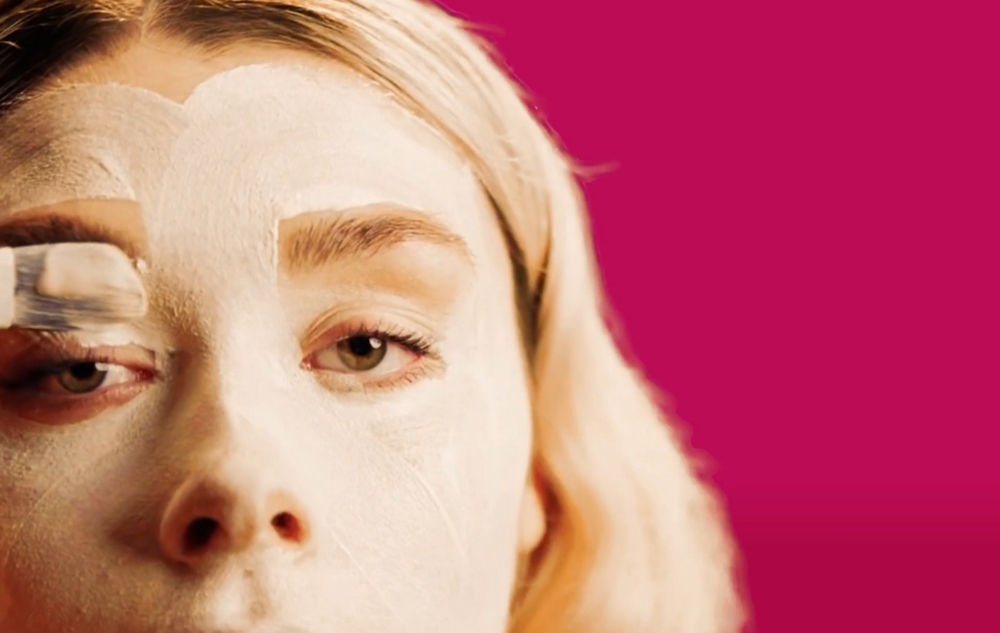
The idea for the film came after watching Martin Scorsese’s short “The Big Shave.” His film follows a man in a pristine bathroom as he is shaving and just does not stop. I found the disquieting contrast between the jazz score, his unaffected response to the violence he was inflicting on himself, and the process of taking a normal task to the extreme really resonated with me but more from the perspective of how women respond to their reflection in the mirror.
I recognised the image from all the adverts I had seen of women standing before mirrors being sold some cream or another and smiling away at the viewer. These adverts always have a chirpy voiceover instructing the woman what to do and effectively resolving her beauty issue – whether it be a spot or ‘lacklustre hair’.
As soon as I began to think about this, all I could hear were the phrases in fashion magazine articles or in celebrity morning routine videos and how utterly excessive they often are. In my mind I started playing a version of “The Big Shave” but with one of these tutorials over the top and it sort of fit. I did not want to replicate any of the violence of this film; but I could not help but thinking of the violence innate in how adverts are made.
…if anything, the sheer intensity and quantity of modern adverts made the ’50s ones seem tame. It is in part why I created visual references to the ’50s throughout the film…georgie cowan-turner
On a structural level there is something menacing about the way the more polished makeup ads are edited; this made me think that I could create the progression of “The Big Shave” by emulating the techniques of adverts and in the process showing how the irony and absurdity of a vlogger’s 40 minute ‘no make-up looks’ can quickly become more sinister. I wanted to show, and I think it is something critics of current beauty advertising techniques do not mention enough, how much advertising has regressed since the popularisation of vlogs on Instagram and YouTube.
I analysed all kinds of modern beauty adverts and vlogs and compared them with 1950s overtly sexist and prescriptive ads; and if anything, the sheer intensity and quantity of modern adverts made the ’50s ones seem tame. It is in part why I created visual references to the ’50s throughout the film and with the ‘prim and proper’ voice of the makeup instructor—who is following a real routine and only speaks phrases from contemporary vlogs and magazines. I wanted the viewer to make the link and question what has changed?
Did you face any obstacles while filming “My Morning Routine” and how did you overcome the same?
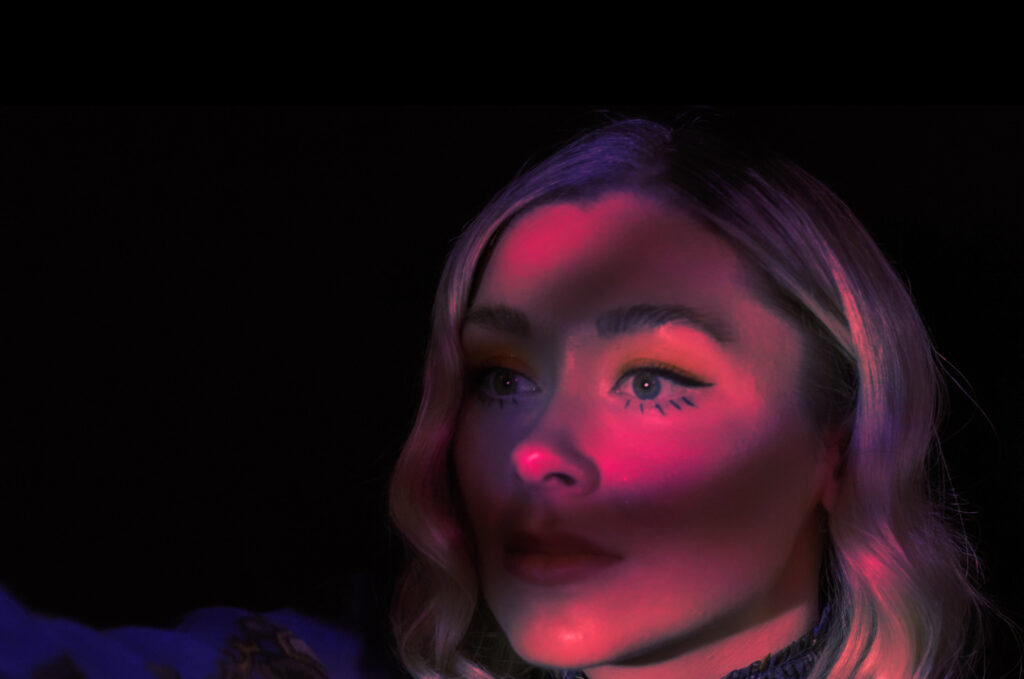
I made “My Morning Routine” initially as part of my MA, which meant although we had access to a studio and the university’s equipment, we had no budget and a very tiny crew (about 4 people). Persoally, I have found that restrictions can often improve the films I make. I am a pragmatic person and would never want to shoot a car chase on a £50 budget; in this case I opted for an idea we could achieve and that would have high impact despite being simple. Because of this we managed to film the project a few weeks ahead of schedule which was extremely fortune because about a week after filming the first lockdown happened and the university was shut for the rest of my MA!
This made the editing process difficult; but at the same time the issues of remote working meant I was forced to take on certain roles—like VFX—which I never would have originally. It is easy to say in retrospect, but I am glad that we had issues. [They] really proved to me that I can turn an idea into reality; it’s always possible to push through despite what at the time feel like monumental problems!
After the experience of working on this film in lockdown I was so excited to make another that I created one entirely by myself in my room about the frustration of receiving rejection emails in a pandemic—something I am sure a lot of people can emphasise with. It was a great way to gain agency over an uncertain period in my life; and it is also performing really well on the festival circuit—which is a welcome surprise.
Lastly, could you share a few details with our readers on any future or current projects you are working on?
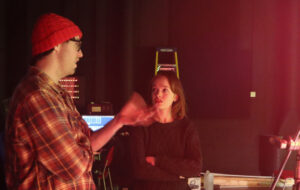
I have a short film script, “Deadly Valentine,” which I can only describe as a mix between a rom-com and detective film with a significant twist. I wanted to subvert the traditional gender roles in rom-coms, and I have received some really positive feedback so far including being selected as a finalist at the ‘ReelHeart International Screen and Screenplay Competition’ in Canada. It is a project I have high hopes for; but I want to develop into a feature and make sure it has the budget it needs to be achieved so I might be working on this for a few years to come.
I have just finished shooting another short, “Best Self” which is slightly more satirical than “My Morning Routine” and is commenting on wellness culture. I am also in the final stages of writing a short which I hope will be a different and enjoyable watch that tackles female stereotypes.
As you might have guessed by the music used in “My Morning Routine” I am a huge advocate for the power of music in film and am really excited to develop relationships with musicians and work directing music videos so that I can bring to life the artist’s vision. Another aim in the next few years is to help create a change in the advertising industry by hopefully working on campaigns and with companies that have a more ethical approach to women and beauty. I would love to work with them to develop ways of engaging with women in an equal conversation and without perpetuating unrealistic beauty expectations.
Do shower all your love on Georgie Cowan-Turner’s “My Morning Routine” which is currently being screened from September 21-26 at the World Cinema Film Festival held by Bluebird Pictures, London.

